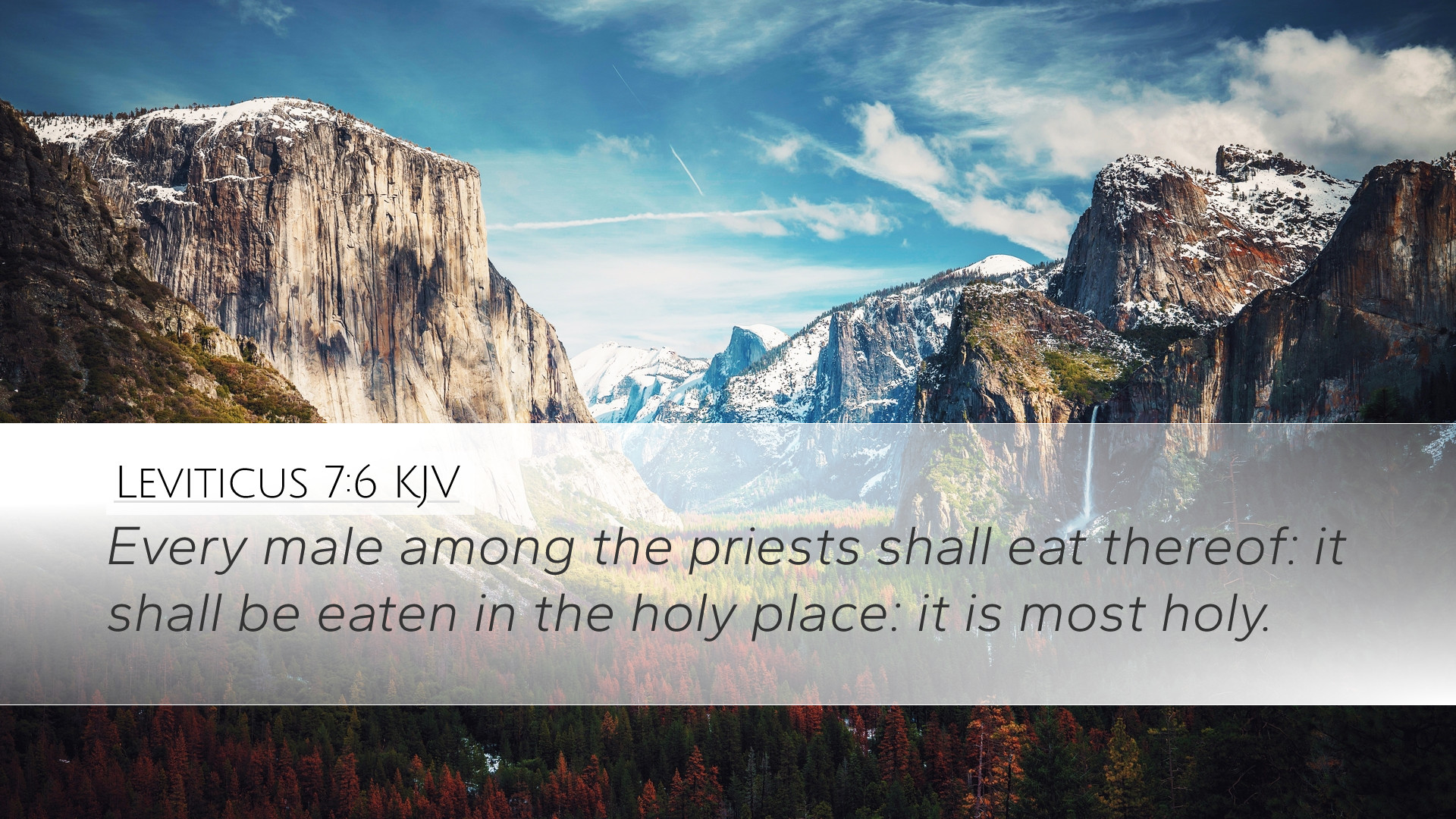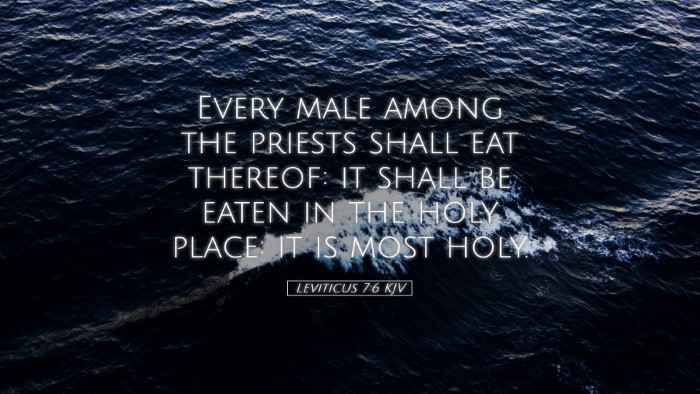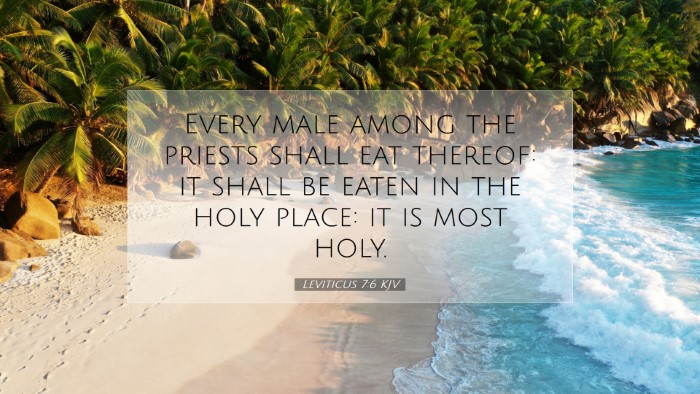Commentary on Leviticus 7:6
Verse Context: Leviticus 7:6 states, "The meat of the sacrifice of his peace offerings for thanksgiving shall be eaten the same day that it is offered; he shall not leave any of it until the morning." This verse is situated within the laws governing the peace offerings, which are significant in the Israelite sacrificial system.
General Significance of Peace Offerings
The peace offerings were a form of communion with God, demonstrating the unity between the offerer and the divine. They were distinct from sin offerings, as they expressed gratitude and fellowship rather than atonement for sin. In this context, the importance of consumed offerings illustrates the reciprocal nature of God’s relationship with His people.
Insights from Public Domain Commentaries
Matthew Henry's Commentary
Matthew Henry emphasizes the joyful aspect of the peace offerings. He notes that the offering was meant to bring a sense of communion and celebration into the life of the worshipper. He observes that the requirement to consume the offerings on the same day reflects the urgency and intention behind expressing gratitude to God:
- Urgency of Gratitude: Henry posits that the act of eating the peace offering the same day serves as a reminder of the immediacy of thankfulness, encouraging worshippers to share in communal meals that solidify their covenant relationship with God.
- Reflection on Generosity: He draws attention to the notion that God desires not only the offering but the heart of the giver. The immediacy of the consumption of the offering underscores the expectation of a joyous celebration of God's blessings.
Albert Barnes' Notes on the Bible
Albert Barnes elaborates on the nature of thanksgiving offerings, pointing out that these sacrifices were distinguished from others due to their celebratory nature. He notes that:
- Timely Consumption: The stipulation for same-day consumption reinforces the communal aspect of worship; it signifies that the worshippers are openly acknowledging God's goodness and mercy in their lives.
- Communal Fellowship: Barnes mentions that these offerings were often accompanied by a meal shared with family and friends, thereby reinforcing community ties and collective gratitude.
Adam Clarke's Commentary
Adam Clarke offers a detailed examination of the peace offerings, emphasizing the theological implications of consuming the sacrifice:
- Symbolism of Fellowship: Clarke interprets the act of consuming the peace offering as symbolic of communion with God. It signifies the believer's participation in the divine blessings and reinforces the sacred covenant.
- Importance of Holiness: He points out that the command to eat the offering on the same day symbolizes the necessity of purity and sincerity in worship. It calls upon the people to reflect the holiness of God in their lives.
- Social Responsibility: Clarke stresses that these offerings were not merely rituals but were connected to social obligation, signifying the importance of sharing God's blessings with others.
Theological Implications
The injunction to eat the sacrifice on the same day has broader theological implications. It underscores the nature of God as a living presence in the lives of His people, who desires a responsive relationship rather than mere rituals:
- Present Blessing: The focus on immediate consumption illustrates the belief that God's blessings are not to be postponed; thanksgiving must be current and vibrant, living out the gratitude in the moment.
- Holistic Worship: The peace offering represents the integration of worship into daily life, encouraging believers to express thanks through actions involving both God and community; it shows the interconnectedness of worship and social bonds.
Practical Applications for Today’s Believers
This text in Leviticus can serve as a foundation for contemporary applications in the life of the church and individual believers. The principles derived from this verse emphasize:
- Living Thankfulness: Encouraging believers to express gratitude actively and promptly in their daily lives—through both worship and community engagement.
- Community Unity: The importance of gathering with others to celebrate God's blessings, fostering a sense of belonging and shared faith.
- Sincerity in Worship: The call for genuine devotion, where private acts of worship are linked to public expressions of gratitude in the life of the church.
Conclusion
In summary, Leviticus 7:6 provides profound insights for modern believers. The principles surrounding the peace offerings encapsulate the essence of gratitude, community, and the holiness required in the worship of God. Reflecting on this verse through the lenses of esteemed commentators encourages pastors, students, theologians, and scholars to explore the richness of God’s interconnectedness with humanity through worship. As we ponder the depths of this scripture, we are invited to embody the very essence of thanksgiving—now and always.


